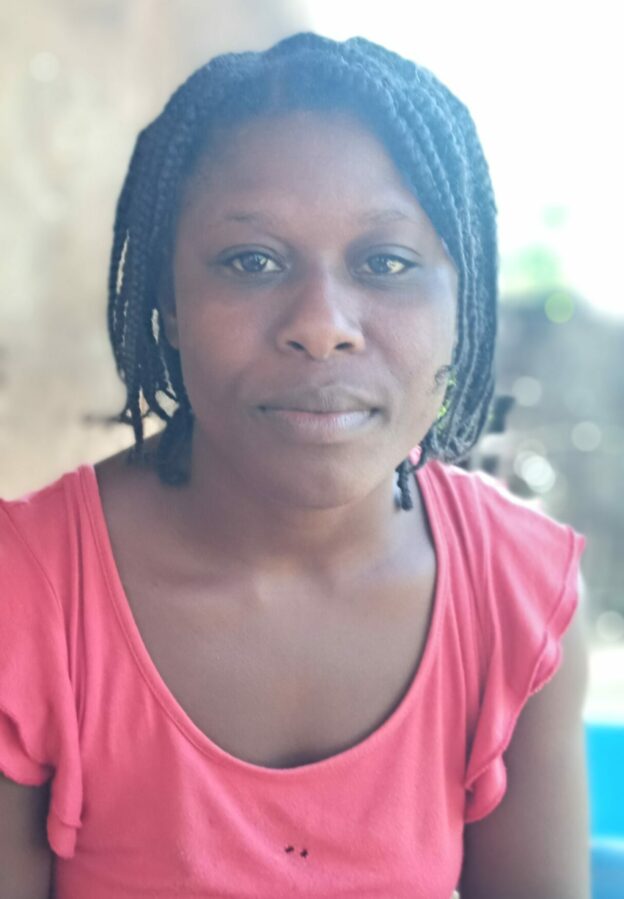Dania is a 26-year-old woman from Beladè, the large town east of Laskawobas, right on the Dominican border. She was living as a single mother there when she met a woman from Ramye. They became friends, and the other woman eventually invited Dania to visit Ramye. The woman liked Dania, and she introduced Dania to her brother, Mergenord. He and Dania moved in together, and have had two children. Dania’s other children remained in Beladè, one with the father and one with another member of the man’s family, but Dania keeps in touch. “I try to call them almost every day.”
She was living together in a small house with her partner, their children, and her partner’s teenage niece when she joined the program. They were getting by more-or-less on what Mergenord could bring in with the few jobs he could find as an assistant carpenter.
Like many of her fellow-members across Wòch Milat, she chose goats and a pig as her enterprises, and, also like many of them, she switched away from the choice of a pig as she watched the pig epidemic in the area worsen. Eventually she took two large turkeys instead of the pig.
Her two goats have been healthy, and one had two kids. The turkeys, however, have been less successful. Though they have grown, they have not laid any eggs, and Dania has, probably rightly, lost patience. “I want to sell them to buy another goat. I can’t keep taking care of them for nothing.” It is nice to have assets that she never had before, but if they don’t produce for her, there isn’t much point.
She’s getting good collaboration from Mergenord. She was recently able to buy a pig “in its mother’s womb” with money he gave her. It’s the cheapest way to buy livestock. She’ll take delivery when the piglet is weaned. He also helps her make regular contributions to her savings and loan association. When the association’s cycle is over in December, she wants to invest the money in more livestock. A cow if she can, more goats if she isn’t ready yet to buy a cow. “When you have a cow, you can sell it if you have a big problem. The calves it gives you can sell for a lot, too. Eventually you can buy land.”
She’s counting on Mergenord for another kind of help as well. She wants to start her own business. It will enable her to contribute more to the household’s income instead of depending on Mergenord, as she does now. She plans to sell laundry products: detergent and soap to start with. “It is too easy to lose money selling groceries. People buy on credit and you use them to feed your own kids.”
She doesn’t feel she has the money to get started yet, but says that Mergenord has promised her that he will give her the capital she needs. This is a common arrangement. Haitian men might start as a household’s primary earner, and they can continue that way, too. But often a man will try to save up a small lump of money he will give to his partner for her to do business with. It helps him as much as it helps her. Mergenord’s work doesn’t bring in money every day. He makes whatever he makes in small lumps, whenever he gets paid for a job. But if Dania sells laundry products with energy, she can bring in a small stream constantly, and this makes managing a household much easier. She’s not sure when Mergenord will give her the money, but she is excited to get started.
